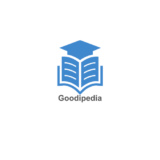Introduction
In an ever-changing world defined by rapid technological advancement and the constant evolution of knowledge, the ability to learn effectively has become more important than what one already knows. “Learning how to learn” is not a luxury reserved for students or academics—it is a fundamental skill for anyone who wishes to adapt, grow, and thrive in the 21st century.
This meta-skill transcends disciplines and professions, empowering individuals to acquire new abilities, solve unfamiliar problems, and remain intellectually agile throughout life.
What Does It Mean to “Learn How to Learn”?
Learning how to learn involves understanding the principles, strategies, and cognitive science behind effective learning. It means becoming aware of how your brain absorbs, stores, and retrieves information—then using that understanding to optimize how you study, practice, and apply knowledge.
Rather than relying solely on rote memorization or passive reading, successful learners use evidence-based techniques such as retrieval practice, spaced repetition, interleaving, and metacognition to master material more deeply and retain it longer.
Why It Matters
Adaptability: In today’s dynamic job market, career changes and skill pivots are common. Being able to quickly learn new tools or concepts gives individuals a major competitive advantage. Confidence: Knowing how to approach new topics reduces fear and increases self-efficacy—the belief that you can succeed. Autonomy: Effective learners are self-directed. They don’t just consume content; they actively engage with it, question it, and build their own understanding. Efficiency: Learning becomes faster, deeper, and less frustrating when guided by cognitive science rather than trial-and-error.
Key Principles of Effective Learning
Active Recall (Retrieval Practice) Testing yourself on what you’ve learned—rather than simply reviewing notes—significantly improves retention. The act of retrieving information strengthens memory pathways and makes learning stick. Spaced Repetition Spreading out study sessions over time leads to better long-term retention than cramming. Revisiting material just as you’re about to forget it strengthens memory consolidation. Interleaving Mixing different but related topics in one study session helps the brain learn to distinguish between concepts and apply them flexibly, rather than just memorizing patterns. Dual Coding Combining verbal explanations with visual representations (e.g., charts, diagrams, or mind maps) activates multiple cognitive pathways and aids comprehension. Metacognition This involves thinking about your own thinking—monitoring your understanding, identifying gaps in knowledge, and adjusting strategies accordingly. Skilled learners are constantly asking: “Do I really understand this?” or “How can I apply this in a different context?”
Common Myths About Learning
“I’m just not a math/language/science person.” Research shows that learning ability is not fixed; it is shaped by practice, feedback, and mindset. “I learn best when I cram the night before.” Cramming might work for short-term recall, but it undermines long-term retention and understanding. “Re-reading and highlighting are enough.” These passive strategies feel productive but are far less effective than active recall and spaced practice.
The Role of Mindset
Psychologist Carol Dweck’s concept of the growth mindset is central to learning. Individuals who believe intelligence and ability can be developed through effort and learning are more likely to persist, embrace challenges, and improve over time. This mindset transforms mistakes from failures into feedback.
Practical Steps to Start Learning Better Today
Set clear, specific goals for what you want to learn and why. Use active techniques (flashcards, self-quizzing, teaching someone else). Plan study sessions using spaced intervals rather than long marathons. Reflect after each session: What worked? What didn’t? What needs review? Be patient—learning is a process, not an event.
Conclusion
To “learn how to learn” is to unlock the foundation of all other skills. It is the most powerful tool in the modern knowledge economy, equipping individuals to remain relevant, curious, and capable across any domain or discipline. No matter your age or background, it is never too late to become a more effective learner—and in doing so, take control of your personal and professional growth.

